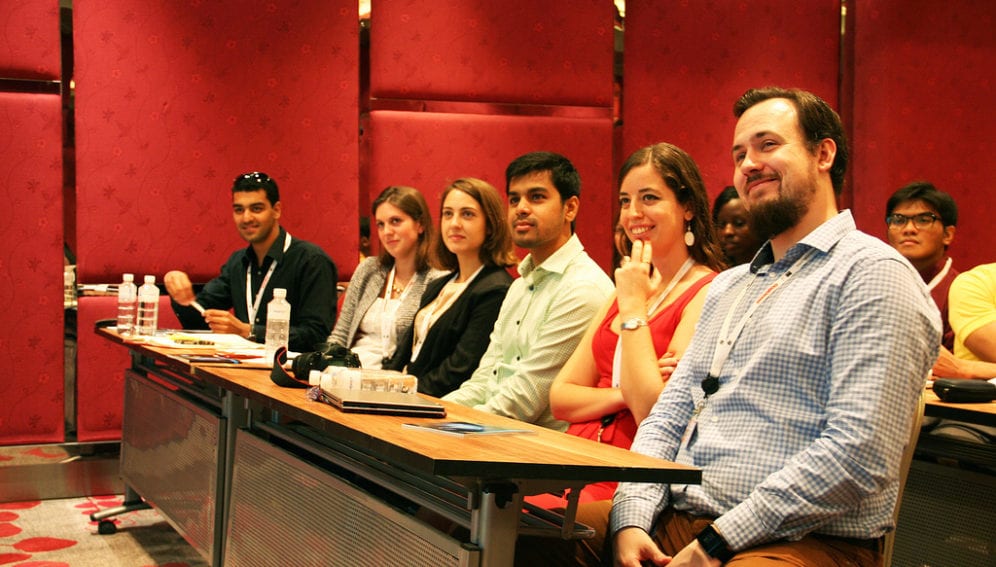By: Wagdy Sawahel
Send to a friend
The details you provide on this page will not be used to send unsolicited email, and will not be sold to a 3rd party. See privacy policy.
Eight young innovators from developing countries will showcase their award-winning digital solutions to development challenges at an event this week run by a UN agency.
The winners of the Young Innovators Competition will present their projects to the audience of the International Telecommunication Union Telecom World 2013, a networking and knowledge-sharing event, which starts tomorrow in Bangkok, Thailand.
Besides competing for two awards, one up to US$5,000 for “great concepts” and another one worth up to US$10,000 for “innovative start-ups”, the winners will take part in a programme designed to assist their projects through one-to-one sessions with start-up mentors and business experts, hands-on workshop training and peer mentoring from the winners of the 2012 competition.
The competition was open to social entrepreneurs who use “technological innovation to improve the social reality of their communities” aged between 18 and 26, and received more than 600 entries from 88 countries around the world, according to the event website.
Eight of the ten winners of the competition come from developing countries: India, Kenya, Nigeria, the Philippines, Qatar, Trinidad and Tobago, Uganda and Vietnam.
The developing countries’ winners’ work focused on diverse issues such as marine protection, reducing food waste, online education, immigration, road safety, and emergency and disaster situations.
One of the winning innovations, Tudlo Disaster and Emergency App, from the Philippines, is an information platform for emergency and disaster situations. It is aimed at guiding people to safety during disasters by providing access to disaster warnings, advice, location data, and disaster mapping.
From Vietnam, Nguyen Tran Hoang is representing the Land-Sea Digital Bridge, a system that uses long-range, high-frequency radio waves to allow fishing boats and shore stations to communicate better.
Keston Perry from Trinidad and Tobago started Kumba Connect, an interface connecting unemployed Caribbean migrants and companies in the Caribbean.
In India, Varun Arora created Open Curriculum, an online platform for providing local educational material for schools.
And Qatar’s Ahmed Fawzi was picked for his invention of Al Dalilah, a satellite-based tracking-and-navigation system for use in disasters.
Brenda Katwesigye is the Ugandan behind M-Tambula, which provides elderly people with easy access to public services using a mobile phone-based voice-recognition system.
Mobile app NduruApp was developed by Kenyan Thomas Kioko to manage road safety in public taxis by determining if the vehicle is breaking speed limits and providing drivers with incident reports.
And Oscar Ekponimo from Nigeria built the SalvageHub web and mobile platform to connect retailers and food charities with the aim of reducing food waste and redistributing this food to people in need.
Daniela Schiffer, co-founder of Changers, a German start-up that makes intelligent, portable solar chargers, and one of the mentors who will supervise the winners at the conference, tells SciDev.Net: “The UN can provide visibility and a broad media exposure within the Young Innovators Competition. This is, in my view, its main task and responsibility.
“[The UN] guides our attention to developing countries and entrepreneurs and helps them find support for their ideas.”
Schiffer says she is a deep believer in the innovative power of trying to make the most of few resources.
To boost innovation in developing countries, she says it is important to provide access to education, retain talented people in those countries and provide programmes to help people expand their ideas.














